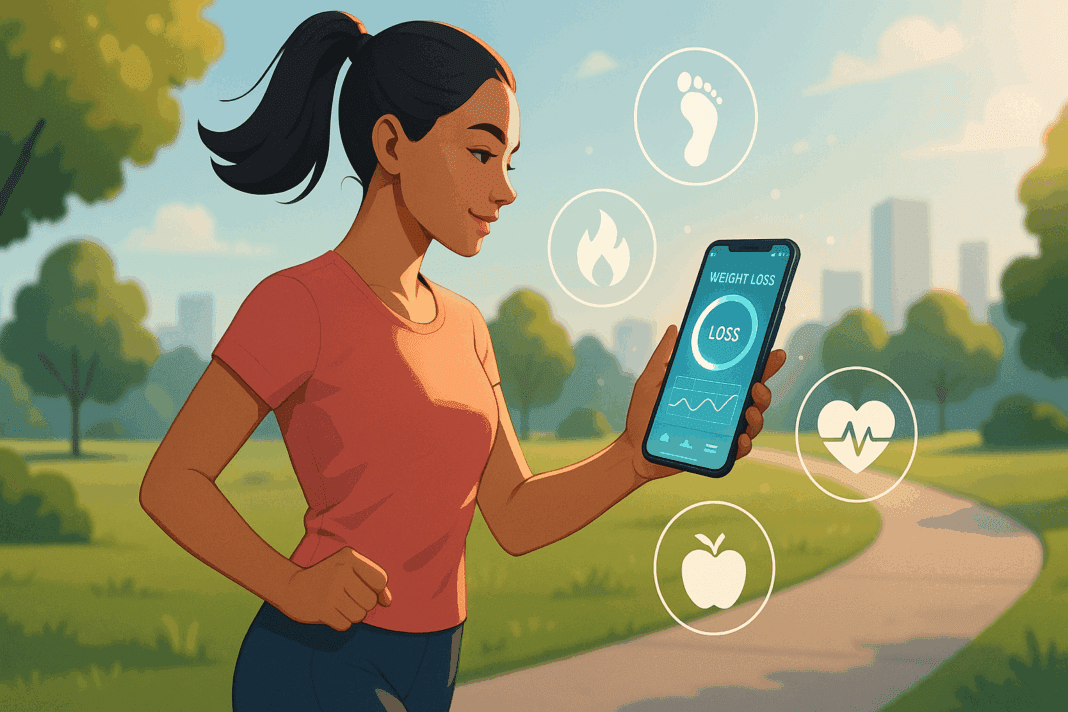Introduction: How Weight Loss Apps Are Changing the Game
In an age where smartphones dominate our daily routines, digital wellness has found a powerful ally in mobile health technology. Among the most impactful advancements is the proliferation of weight loss apps, which provide on-the-go guidance, calorie tracking, progress monitoring, and psychological support for individuals seeking a healthier lifestyle. With the popularity of these tools soaring, it is more important than ever to discern which platforms truly deliver results. This article explores the best free weight loss apps that really work, based on medical recommendations and the latest evidence-based approaches, while also ensuring the user’s experience is seamless, accessible, and empowering.
You may also like: Expert-Backed Weight Loss Tips for a Healthier Lifestyle: What You Need to Know for Long-Term Weight Control and Wellness
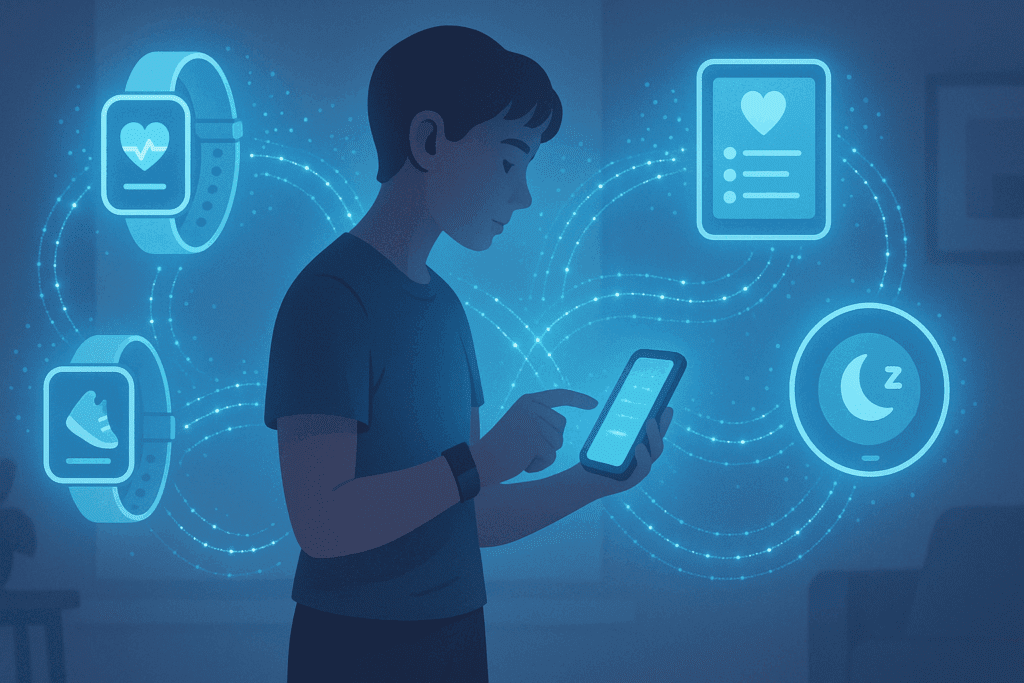
Why Digital Tools Are Effective for Weight Loss
Weight loss can be a complex and multifaceted journey. Many people struggle to navigate the maze of dietary recommendations, exercise regimens, and behavioral strategies. Fortunately, the rise of the weight loss tracker app has transformed the landscape, allowing users to monitor progress, receive reminders, and access science-backed insights in real time. While countless weight loss apps are available on the market, the best free weight loss apps distinguish themselves by offering a comprehensive approach to health without requiring users to pay for basic functionality. This democratization of wellness is particularly beneficial in communities where access to in-person coaching or medical support may be limited.
What Makes a Good Weight Loss App?
The best weight control apps are those that go beyond simple calorie counting. They integrate psychological tools like goal-setting and habit tracking, offer support communities, and include education on nutrition and exercise science. For individuals looking for the best app to reduce weight without a subscription, the challenge lies in identifying platforms that not only claim to be helpful but actually prove effective when tested against real-world behavior change outcomes. From diet logging to AI-based coaching, these applications have revolutionized the way we think about health, and their success stories continue to grow across age groups and demographics.
The Role of Medical Professionals in Recommending Weight Loss Apps
Healthcare providers increasingly recommend digital tools as part of an integrated wellness strategy. When reviewing free weight loss apps, professionals assess factors like usability, data accuracy, clinical relevance, and user retention. As such, the most trusted weight loss mobile apps are those that are evidence-informed, regularly updated, and rooted in behavior change theory. Whether you’re seeking a free weight control app to help you stay on track or looking for a good weight loss app that complements your exercise regimen, the growing ecosystem of weight loss applications offers more choices than ever before.
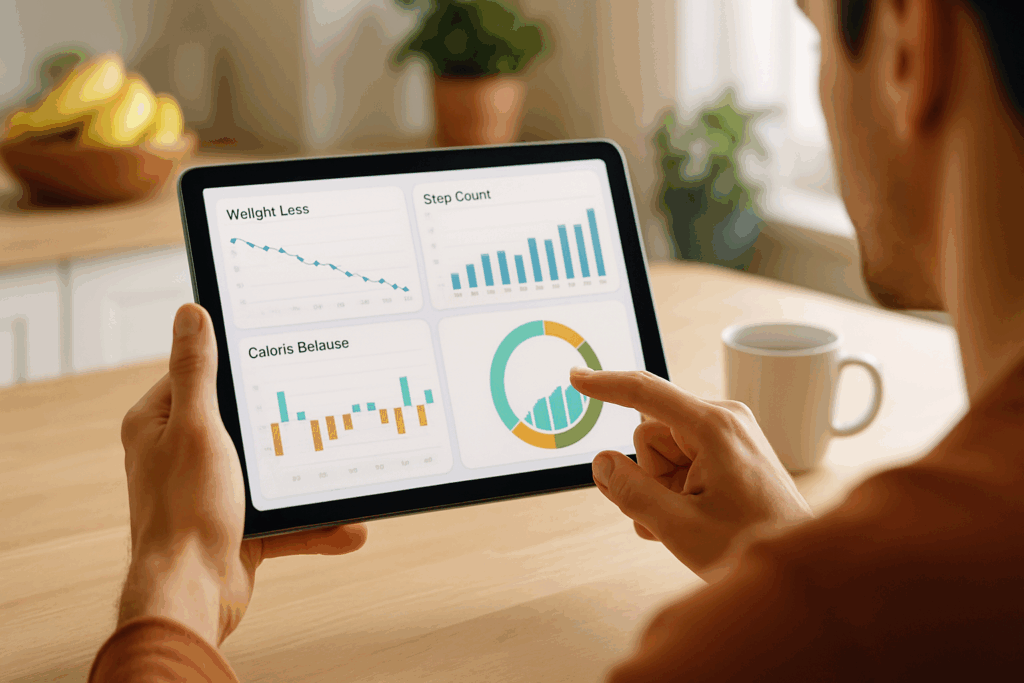
The Power of Data and Visualization in Weight Management
The appeal of these apps lies in their ability to turn abstract goals into measurable, achievable outcomes. A free weight loss tracker app, for example, often includes interactive charts and visualizations that translate data into motivation. These features are not only engaging but also encourage consistency, which is a critical component of successful long-term weight management. Moreover, the best free weight tracker app without subscription does not lock essential features behind a paywall, enabling users from all financial backgrounds to take ownership of their health.
Enhancing Lifestyle Change Through Digital Accountability
Incorporating a weight reducing app into your lifestyle can catalyze significant change, especially when combined with doctor-recommended practices such as balanced nutrition, regular physical activity, and mindful eating. These apps serve as digital accountability partners, offering daily feedback and reinforcing positive habits. For many, they also serve as a convenient alternative to traditional food journals or in-person weight loss programs. This convenience, when coupled with evidence-based design, creates a potent tool for transformation.
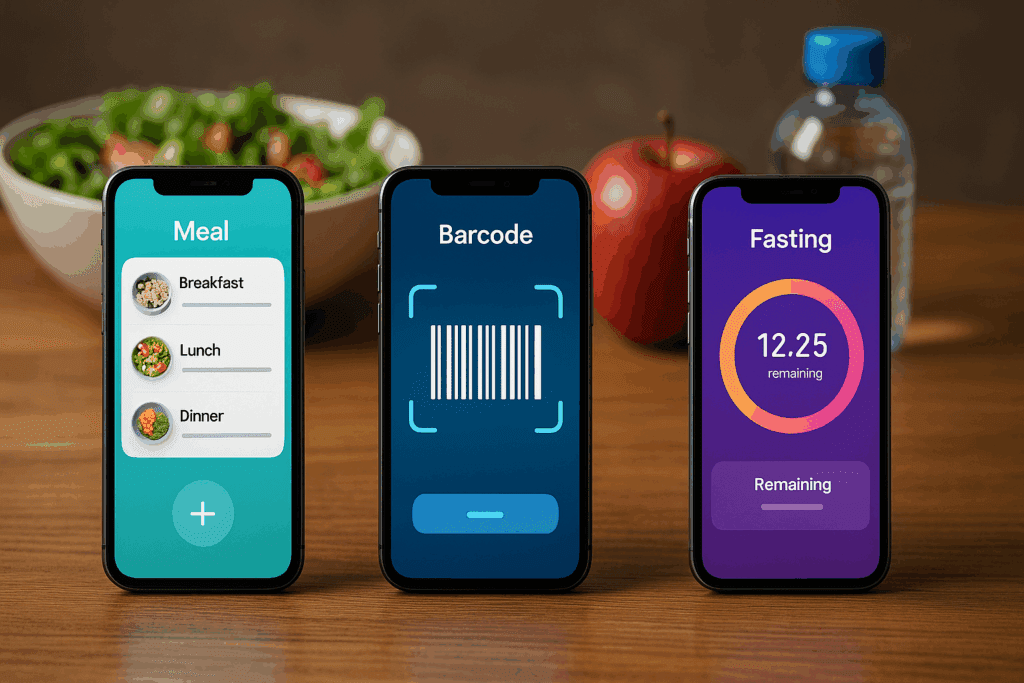
Top-Rated Free Weight Loss Apps Backed by Experts
A standout example in the world of dieting apps is MyFitnessPal. Widely recognized for its robust database of foods and user-friendly interface, it allows for detailed calorie tracking and macro breakdowns. What elevates it among weight loss phone apps is its flexibility: users can customize goals based on doctor input, dietary preferences, or specific health conditions. While it offers premium upgrades, the core functions are free, making it one of the most popular and good free weight loss apps available.
Another compelling platform is Lose It!, which is often cited as the best weight loss calorie app due to its visual interface and barcode scanner. It helps users make more informed food choices while aligning with physician-advised caloric deficits. As a weight loss application that emphasizes ease of use, Lose It! proves that sustainability in dieting doesn’t require complexity or high costs. For users seeking weight loss programs free of rigid meal plans and financial commitments, it is a particularly valuable resource.
Yazio, another well-regarded tool, blends intuitive design with scientific accuracy. Known among experts for being one of the best diet applications, it includes fasting options, nutrition tracking, and personalized meal suggestions. Its appeal lies in its balance of aesthetic simplicity and depth of information. Those looking for a free weight loss system that supports holistic health—without relying on gimmicks—will find it to be a strong ally in their wellness efforts.
Advanced Features That Set Top Apps Apart
Health professionals also point to apps like Chronometer for users who want more granular data, including micronutrient tracking. This is particularly beneficial for those with complex health needs or dietary restrictions. Among the best weight loss tracker apps, Chronometer stands out for its accuracy and clinical-grade nutrient database. Whether your goal is general weight loss or managing specific conditions, tools like this offer precision and personalization that rival some paid systems.
Free weight control apps like SparkPeople (formerly) and FatSecret provide community support features, which research shows can significantly increase accountability and success. These platforms not only allow users to track meals and workouts, but also to connect with peers who share similar goals. This sense of shared journey can enhance motivation and make the process less isolating. In this way, weight control apps function not just as digital tools, but as emotional support systems during a challenging process.

Behavioral Psychology and the Role of Gamification
Emerging platforms such as Noom (free trial-based) have also reshaped the landscape by integrating behavioral psychology into app design. Though Noom ultimately transitions to a subscription model, its initial phase provides users with insights into habit formation and cognitive reframing. This makes it a hybrid between a free weight loss tracker app and a behavior-focused coaching system. For users seeking deeper understanding of their eating patterns, Noom’s approach can serve as a bridge between casual tracking and long-term therapeutic support.
While many apps offer value, not all deliver clinically significant results. To determine what qualifies as the best weight loss tracker app, one must consider whether it supports sustained weight loss, aligns with dietary guidelines, and facilitates self-efficacy. Apps to help lose weight should not only track metrics but also encourage meaningful behavior change. This distinction separates high-quality options from those that merely log data without reinforcing strategy or motivation.

Holistic Health Integration in Weight Loss Apps
The best free weight loss apps often incorporate features like reminders for hydration, integrated fitness tracking, sleep monitoring, and emotional journaling. These comprehensive tools are far more effective than platforms that focus solely on calorie input and output. They represent a holistic approach to health, one that reflects the interconnectedness of lifestyle factors. Good weight loss apps understand that long-term results stem from consistent, informed decisions—not drastic short-term diets.
Beyond features, the user experience of these platforms plays a vital role. A weight loss mobile app must feel intuitive and supportive, especially for users who may already be struggling with body image or self-doubt. Design that fosters positive reinforcement, avoids shaming language, and offers achievable milestones can significantly improve adherence. The best app to reduce weight is one that feels like a supportive guide rather than a punitive monitor.
Trustworthiness and Medical Alignment in App Design
Incorporating clinical guidelines into app frameworks is also an important aspect of trustworthiness. For instance, apps that base recommendations on CDC or WHO dietary standards demonstrate alignment with public health best practices. When a weight loss application reflects medically sound principles, users are more likely to achieve healthy results without compromising nutritional adequacy. This is where EEAT—experience, expertise, authoritativeness, and trustworthiness—becomes essential in evaluating app quality.
Some users prioritize anonymity and privacy, particularly when engaging with digital health platforms. The best weight control apps are those that respect data security while also offering integration with electronic health records or wearable technology. The ability to share progress with a physician, dietitian, or trainer directly from the app can enhance the continuity of care. As mobile health advances, ensuring that weight loss phone apps comply with HIPAA or similar international privacy standards becomes increasingly important.
Motivation, Education, and Long-Term Sustainability
The behavioral science behind successful weight loss is rooted in habit formation, positive reinforcement, and self-monitoring. Therefore, apps that offer goal-based challenges, streaks, and badges often outperform those that do not. These gamified elements are particularly effective in maintaining user engagement over time. Free weight loss programs that really work usually combine this motivation with robust educational content, giving users the tools to understand the “why” behind the “how.”
The best free weight loss apps are designed to evolve with the user. They begin by offering basic functionality—meal logging, weight tracking, and fitness monitoring—but gradually introduce advanced features as users become more confident. This graduated learning curve mirrors how doctors educate patients: start with foundational knowledge, then build layers of understanding. For those seeking a free weight loss tracker app that supports them from day one through long-term maintenance, adaptability is a critical advantage.
Enhancing Results Through Fitness Integration and Mental Health Tools
Apps such as FitOn and Nike Training Club, while primarily focused on fitness, can play a significant complementary role in weight management. When paired with a weight loss tracker app, these fitness platforms enhance outcomes by encouraging physical activity, which is essential for metabolic health. Integrating fitness and nutrition data within a single dashboard helps users visualize the interplay between diet and movement, creating a more comprehensive wellness strategy.
There is also a psychological dimension to weight loss that good weight loss apps must address. Emotional eating, stress, and lack of self-efficacy can sabotage even the best-laid plans. Some of the best free weight tracker apps without subscription offer mood tracking and reflective journaling, which allow users to identify emotional patterns associated with eating. By bringing these insights to the surface, users can make more conscious decisions and seek help when needed.
Measurable Outcomes and Medical Safety
In evaluating whether a free weight loss system is effective, outcomes matter. Sustainable weight loss—defined medically as 5% to 10% of body weight over six months—should be the benchmark. Apps that help users achieve this while preserving lean mass, reducing blood pressure, and improving lipid profiles are those that have real-world value. When selecting the best weight loss calorie app or weight loss mobile app, results should be measurable not only in pounds but in improved health markers and quality of life.
It is essential to note that while apps are helpful, they are not a replacement for medical advice. People with underlying health conditions, eating disorders, or on prescription medications should consult their healthcare provider before using weight loss apps intensively. That said, the growing alignment between digital tools and clinical care represents a powerful evolution in health delivery, especially when the selected app complements professional guidance.
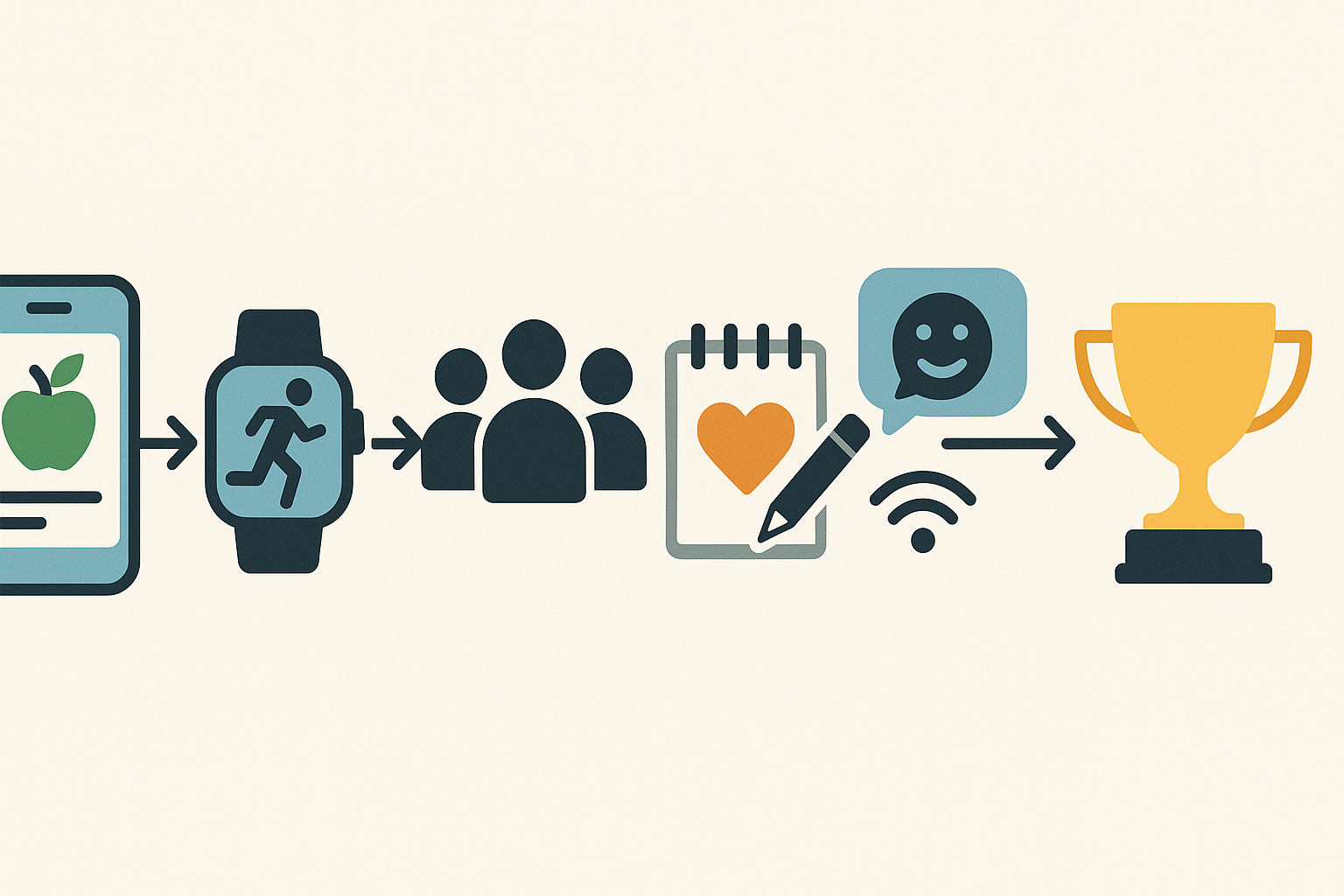
Frequently Asked Questions: Best Free Weight Loss Apps That Really Work
1. How do free weight loss apps help users maintain long-term results rather than just short-term weight loss? Free weight loss apps that truly work emphasize behavior modification over rapid results. These apps often integrate long-term habit-building features such as daily check-ins, personalized feedback loops, and goal revision tools that adapt as your body and lifestyle change. Unlike fad diets or quick fixes, a high-quality weight reducing app can help reframe a user’s mindset about food, movement, and self-care. The best weight control apps use cognitive-behavioral strategies, reminding users to reflect on their eating habits and triggers. Over time, this helps create a sustainable pattern of healthy living that supports weight loss maintenance even when motivation fluctuates.
2. What should I look for in the best free weight tracker app without subscription to ensure it’s medically reliable? When evaluating a free weight loss tracker app, look for features that align with clinical nutrition guidelines, such as evidence-based calorie calculators, meal logging by macronutrient ratio, and verified food databases. Apps that collaborate with registered dietitians or follow CDC-recommended frameworks tend to be more trustworthy. The best free weight loss apps also provide references to peer-reviewed studies or health organizations, ensuring that users aren’t led by pseudoscience. While not a replacement for medical advice, these apps often serve as effective adjuncts for physician-supervised weight management plans. A medically reliable weight loss application will also offer guidance that respects user health history, not just weight goals.
3. Are there any social or community benefits to using free weight control apps? Yes, community support is a crucial component that many free weight control apps provide, especially for individuals who lack access to in-person coaching. Built-in forums, challenges, and support groups within weight loss mobile apps create a shared space for encouragement and accountability. These social features foster a sense of belonging, which research has shown to be a major motivator for health-related behavior change. In some of the best app to reduce weight options, users can even buddy up with accountability partners or form team-based goal groups. This interactive dimension makes good weight loss apps more than just trackers—they become part of a person’s emotional support system.
4. What’s the role of AI in today’s best weight loss tracker app designs? Artificial intelligence is revolutionizing the functionality of today’s best free weight loss apps by delivering hyper-personalized feedback and predictive insights. These smart features can analyze past user data to anticipate plateaus, suggest nutritional changes, or adapt workout intensity based on real-time results. In some advanced weight loss apps, AI even helps users differentiate emotional eating patterns from physical hunger by analyzing diary inputs or biometric signals. This kind of technology transforms a basic dieting app into a responsive wellness assistant. Over time, this allows for more adaptive and effective progress tracking, especially when traditional methods plateau.
5. Can a weight loss phone app really replace a nutritionist or fitness coach? While no app can fully replace the nuanced judgment and clinical training of a licensed nutritionist or fitness coach, the best diet application can complement professional advice exceptionally well. For individuals unable to afford or access healthcare professionals regularly, free weight loss programs that really work can offer evidence-based structure and routine. Many weight loss phone apps include features like meal planning, nutrient analysis, and motivational prompts that reflect best practices in dietetics and exercise science. Used under medical supervision, these apps can enhance patient adherence to prescribed programs. In essence, they act as digital extensions of professional care, especially for general lifestyle changes.
6. How do good free weight loss apps approach emotional and psychological factors of weight loss? Some of the best weight control apps now integrate cognitive behavioral tools that prompt users to log emotions alongside meals or workouts. These emotional check-ins can identify patterns—like eating due to stress, boredom, or fatigue—and offer coping strategies. In this way, a quality weight loss tracker app becomes a reflective journal that supports mental wellness alongside physical goals. Additionally, weight loss applications are beginning to offer guided mindfulness exercises, mood logs, and affirmations to promote resilience. Addressing the emotional side of dieting can drastically improve long-term adherence and minimize self-sabotage.
7. What are some hidden costs or limitations of using free weight loss tracker apps? Even the best free weight tracker app without subscription may include premium features that users discover only after download. Common limitations include restricted access to progress analytics, personalized coaching, or detailed macro tracking unless users upgrade. Moreover, some free weight loss apps require internet access to function fully, which can be a barrier in low-connectivity regions. Privacy is another concern; users should review how their health data is stored and whether it’s shared with third-party advertisers. Being informed about these limitations allows users to set realistic expectations and make smart choices when choosing apps to help lose weight.
8. How do free weight loss apps integrate with wearable technology or smart devices? Most modern weight loss mobile apps are compatible with devices like Apple Watch, Fitbit, and Google Fit. These integrations allow for real-time syncing of heart rate, steps, sleep, and even hydration data, offering a comprehensive health snapshot. For those managing specific goals like intermittent fasting or blood sugar control, this integration is invaluable. Some apps also use motion sensors to track workout form or intensity, adding another layer of personalized feedback. With this connectivity, a free weight loss system becomes part of a broader digital health ecosystem that supports lifestyle precision.
9. What innovations are emerging in the future of weight loss applications? Emerging trends in the best weight loss calorie app market include augmented reality (AR) for guided workouts, real-time nutrition scanning, and genomic-based personalization. Future free weight loss tracker apps may use DNA analysis to predict how users metabolize fats, carbs, or respond to exercise types. Another innovation is behavioral gamification, where users earn digital rewards or virtual currency for healthy habits. Additionally, virtual coaching with real-time AI avatars is beginning to enter the scene, offering companionship and motivation 24/7. These advances signal a shift from passive logging to immersive and predictive health engagement.
10. Can dieting apps help people with medical conditions like PCOS or insulin resistance? Yes, but with caution and personalization. Some of the best free weight loss apps allow users to adjust dietary macros, track glycemic load, or monitor cycle-related symptoms—features that can be especially helpful for managing PCOS or insulin resistance. However, it’s important to choose a weight loss application that allows for nuanced control rather than one-size-fits-all diets. The best weight control apps for such users are those that offer education, flexibility, and support for gradual change rather than rigid calorie deficits. Always consult with a healthcare provider when using a dieting app in the context of a chronic condition.
Conclusion: Finding Your Digital Ally in Weight Management
As the healthcare landscape continues to embrace digital innovation, free weight loss apps have become a powerful adjunct to traditional lifestyle interventions. For users seeking the best weight loss tracker app, the journey begins with selecting a platform that integrates usability, clinical relevance, and adaptability. Whether you’re drawn to weight loss phone apps for their convenience, or you’re searching for the best diet application to align with a medical weight management plan, today’s offerings are more robust and personalized than ever.
The value of these tools is not simply in tracking calories or steps but in fostering a new relationship with health—one rooted in awareness, accountability, and self-compassion. Whether you’re using a good weight loss app to guide your first efforts or refining a long-term strategy with a free weight loss system, the right platform can make all the difference. With the support of evidence-based design, a weight loss application becomes more than a piece of software—it becomes a trusted partner in the pursuit of lifelong wellness.
For anyone ready to embrace technology as part of their health journey, there has never been a better time. With so many high-quality, best free weight loss apps available, there is no need to go it alone. From tracking your meals to connecting with supportive communities and aligning with medical advice, these apps offer the tools, insights, and structure needed to succeed. Choose wisely, stay consistent, and let your digital ally help guide you toward a healthier, more confident future.
Further Reading:
7 Best Weight Loss Apps in 2025, According to Experts
7 of the Best Free Weight Loss Apps
16 Weight Loss Apps That Actually Work


